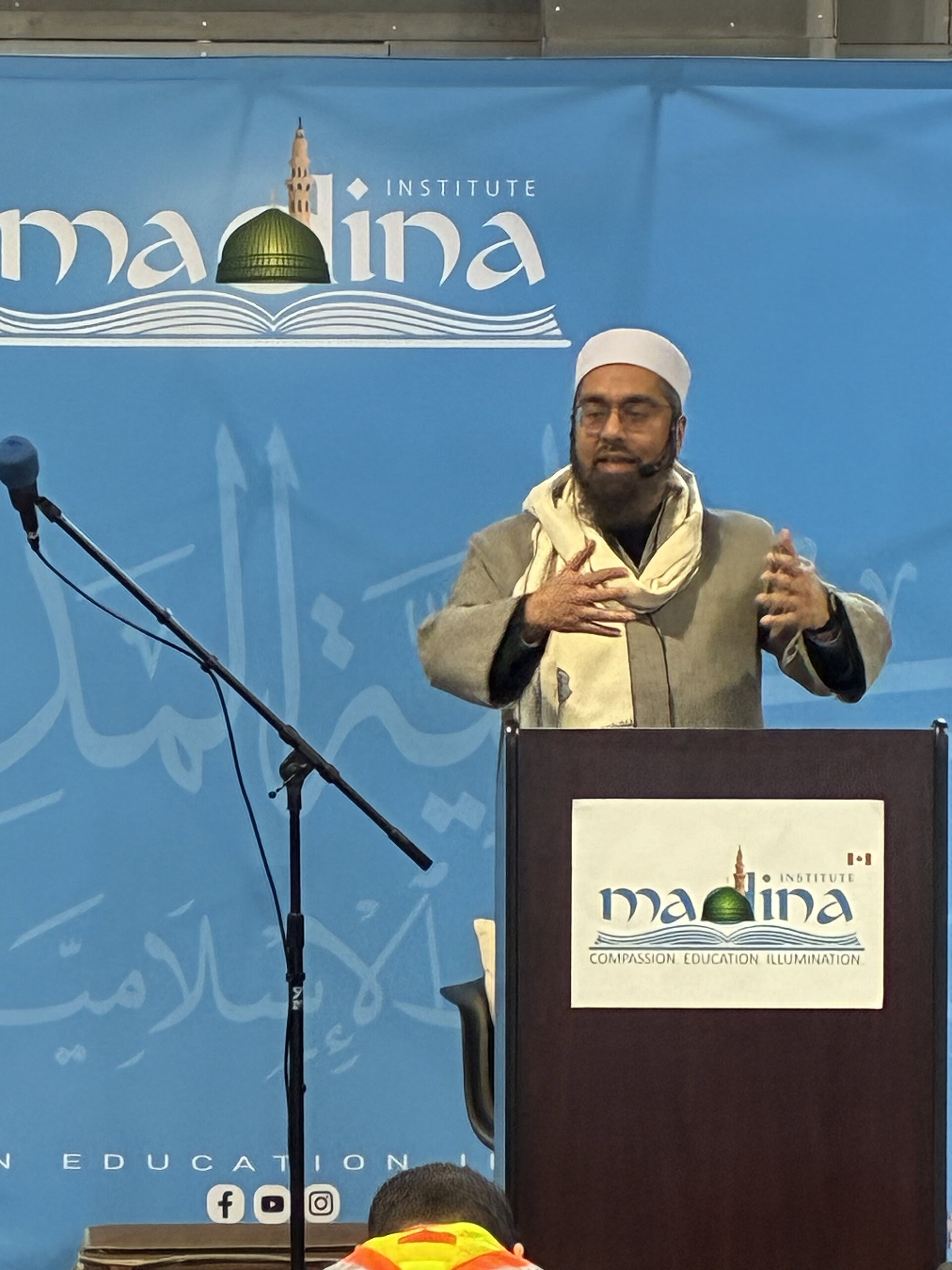The Gift of Fasting and the Path to Allah’s Mercy – Shaykh Faraz Rabbani
A Month of Opportunity and Spiritual Return
Alhamdulillah, Ramadan is one of the great opportunities to return to Allah (Most High). As one of the scholars of Islam, Ibn Ata’illah (Allah have mercy upon him) said:
“Allah has made obedience incumbent upon you, but in reality, He has only made Paradise incumbent for you.”
This month is a divine invitation to draw near to our Creator.
Time and the Blessing of Fasting
For those who have fasted for many years, you may remember when the summer fasts were long and challenging.
Despite the difficulty, most believers managed to persevere. Now, as the years pass, fasting is becoming easier in many parts of the world.
Yet, regardless of the length of the day, we should recognize the blessing of being granted the ability to fast.
Allah Most High has not left us wandering aimlessly in this world. He has given us a clear purpose, a promised Hereafter, and an eternal abode of bliss—Paradise. The Prophet (Allah bless him and give him peace) described it as:
“What no eye has seen, what no ear has heard, and what no heart has ever imagined.” [Bukhari, Muslim]
This is a place of absolute mercy, divine good pleasure, serenity, and contentment—beyond anything we can fathom. Yet, Allah has also given us the means to reach this eternal reward.
A Test with the Answer Sheet Given
Life is a test, but it is unlike any other. Why? Because the answers are already provided. Allah has clearly laid out what we need to do:
“O you who believe! Fasting has been prescribed for you, as it was prescribed for those before you, so that you may attain mindfulness of Allah.” [Quran, 2:183]
The Quran calls upon us to listen attentively and take heed. Fasting was practiced by previous nations as well, though the details differed. While historical discussions about their specific fasting practices exist, what matters is that fasting carries both spiritual and worldly benefits.
The Unique Reward of Fasting
Fasting is not just a duty—it is a unique act of devotion that carries a special reward. The Messenger of Allah (Allah bless him and give him peace) related from his Lord:
“Every action of the son of Adam is for them, except for fasting. It is for Me, and I shall reward it.” [Bukhari, Muslim]
Scholars liken this to a king personally bestowing a gift upon his most honored servants. Unlike other acts of worship, fasting is inherently sincere. No one else truly knows whether you are fasting or not—only Allah does.
Fasting: A Path to Consciousness of Allah
One of the greatest benefits of fasting is its ability to instill awareness of our need for Allah. Through hunger, we recognize our dependence on Him. Allah describes Himself as:
“Allah is the One free of all need, worthy of all praise.” [Quran, 35:15]
“Say: He is Allah, the One. Allah, the Absolute.” [Quran, 112:1-2]
The word As-Samad (the Absolute) refers to the One who is completely independent while all creation depends on Him. One of the meanings of Samad is “the One who does not eat or drink”—a powerful reminder of our complete reliance on Allah.
Fasting: A Stillness that Leads to Reflection
The Arabic term for fasting (ṣawm) carries the meaning of stillness and restraint. The Arabs used to describe horses that stood still as ṣā’im, and even the sun at its highest point was described as ṣā’im—momentarily motionless.
Fasting teaches us to pause—to hold back from indulging in our desires. Instead of immediately messaging a friend about how hungry we feel, let that moment become one of reflection:
- Reflect on Allah’s greatness.
- Reflect on the immense reward of fasting.
- Reflect on your utter need for Allah.
- Reflect on the blessings you enjoy, knowing that others experience hunger daily—not by choice, but by necessity.
The Quran and Acts of Worship in Ramadan
Ramadan is a time to reconnect with the Quran. Since we are not occupied with food and drink, we should dedicate time to recitation and reflection. Even if one cannot read Arabic fluently, listening to or reading a reliable translation can be deeply beneficial.
The Prophet (Allah bless him and give him peace) emphasized the importance of breaking the fast with others, saying:
“The fasting person has two joys: one when they break their fast and another when they meet their Lord.” [Bukhari, Muslim]
Breaking the fast together strengthens bonds of love and worship. The Prophet (Allah bless him and give him peace) also encouraged feeding others at iftar, as it carries great reward.
A Balanced Approach to Ramadan
Many people eat excessively at night, undoing the physical and spiritual benefits of fasting.
One of the interpretations of taqwa in fasting, as mentioned by Imam Qurtubi (Allah have mercy upon him) is that fasting weakens our carnal desires, allowing our hearts to be more receptive to Allah’s guidance. The Prophet (peace and blessings be upon him) emphasized moderation, and Allah warns us:
“Eat and drink, but do not be excessive.” [Quran, 7:31]
Ramadan should not become a month of indulgence. Instead, it should be a time of moderation and spiritual focus.
Making Dua for the Umma
We ask Allah Most High to grant us and the entire Umma a truly transformative Ramadan. We make dua for our brothers and sisters suffering across the world—in Palestine, Syria, Kashmir, Sudan, the Uyghur region, Rohingya communities, and beyond. May Allah grant them relief, victory, and divine openings.
May Allah allow us to find moments of stillness this Ramadan—moments that deepen our connection with Him, cultivate gratitude, and strengthen our bonds with family, friends, and the community.
Listen to the talk here:
